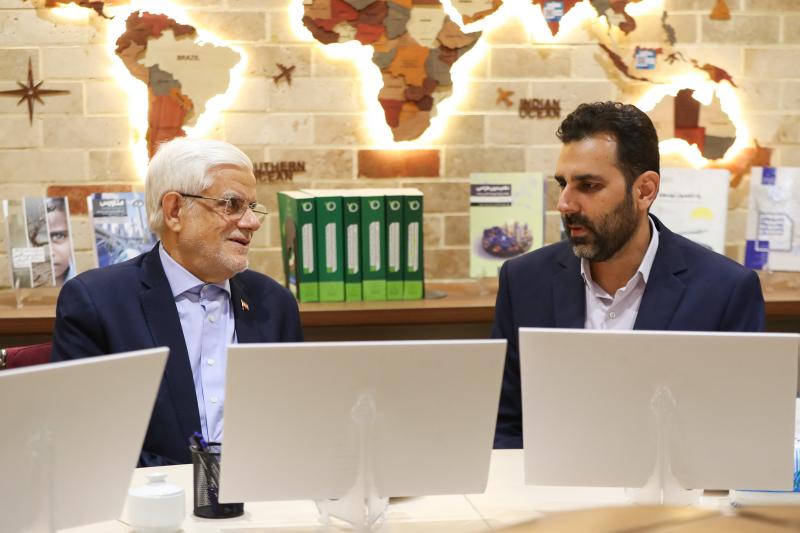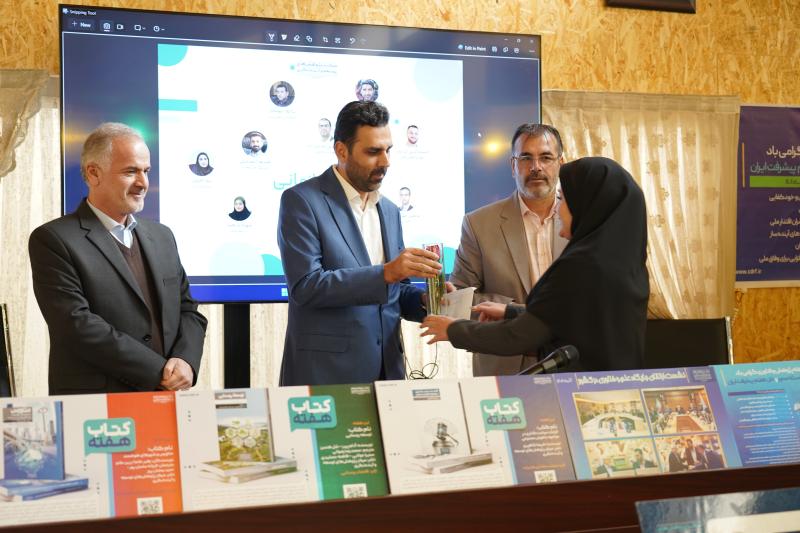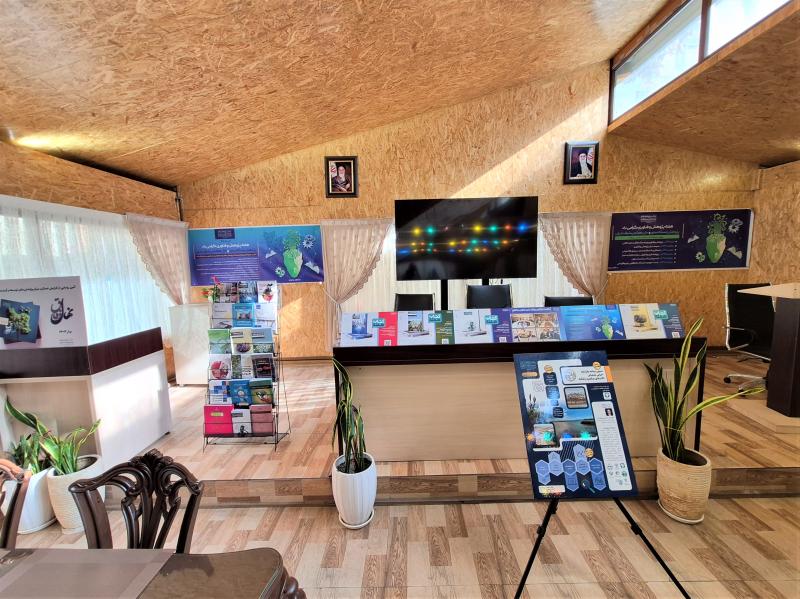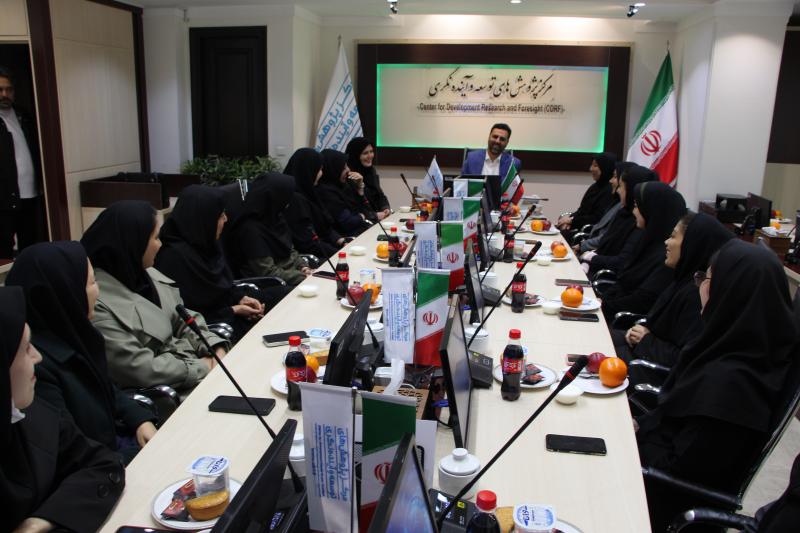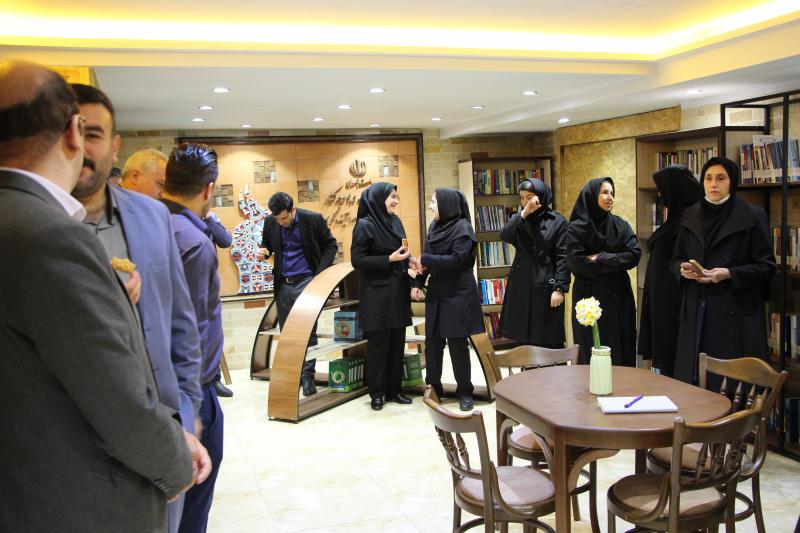
-
بررسی آییننامهها و دستورالعملهای برنامه هفتم پیشرفت
-
بررسی عوامل موثر بر افزایش تصادفات و تلفات جادهای و سوانح رانندگی و دادهکاوی تلفات انسانی
-
سازماندهی و بازآرایی فضایی آموزش عالی کشور
-
به روز رسانی سند ملی آمایش سرزمین
-
انجام مطالعات مناطق آزاد به عنوان نواحی پیشران اقتصادی کشور
-
اصلاح ساختار بودجه و پیاده سازی نظام یکپارچه مدیریت اطلاعات مالی دولت (IFMIS)
کلید واژه : Land use
تعداد اخبار : 19
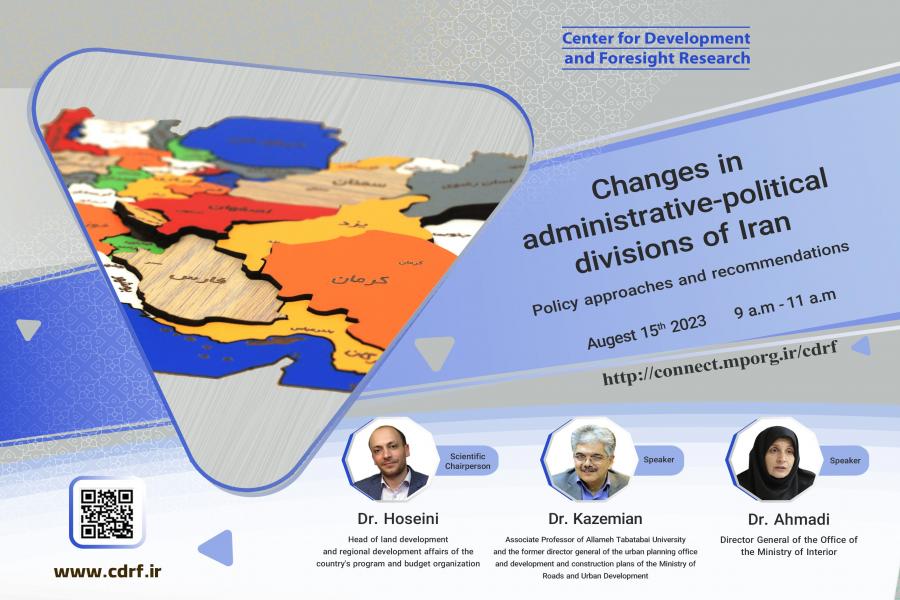
National Land Use Plan: The Key to Balanced Development and Budget Resource Allocation
The scientific-specialized conforence of "Transformations in the Administrative-Political Divisions of Iran: Approaches and Policy Recommendations" was held. .jpg)
Mass housing is the public demand from the government.
The scientific-specialized meeting entitled "Strategies for addressing the Housing Supply Crisis" was held with the presence of Mr. Rouhollah Akbari, Special Assistant to the Minister and Secretary of the Committee of Housing of the Ministry of Roads and Urban Development, as the scientific director, Dr. Mohammad Hossein Sharifzadegan, Professor at Shahid Beheshti University and former Minister of Welfare and Social Security, and Dr. Abolfazl Norouzi, Advisor to the Minister and Director General of the Housing Economy Office of the Ministry of Roads and Urban Development, as speakers..jpg)
Public-Private Partnerships in Land Development: Key Figures Discuss Pressing Issues
In the specialized conference titled "The Model of Public-Private Partnership in Land Development", it is stated that Public-Private Partnerships (PPPs) are essential for meeting the world's infrastructure needs, but face challenges such as financing, maintenance, and planning. Governments play a crucial role in PPPs by fostering a collaborative environment, building capacity, and providing transparent policy-making and necessary financial resources. In Iran, PPPs are still in their early stages, and the government needs to address challenges such as lack of interest from executive agencies and absence of a comprehensive approach.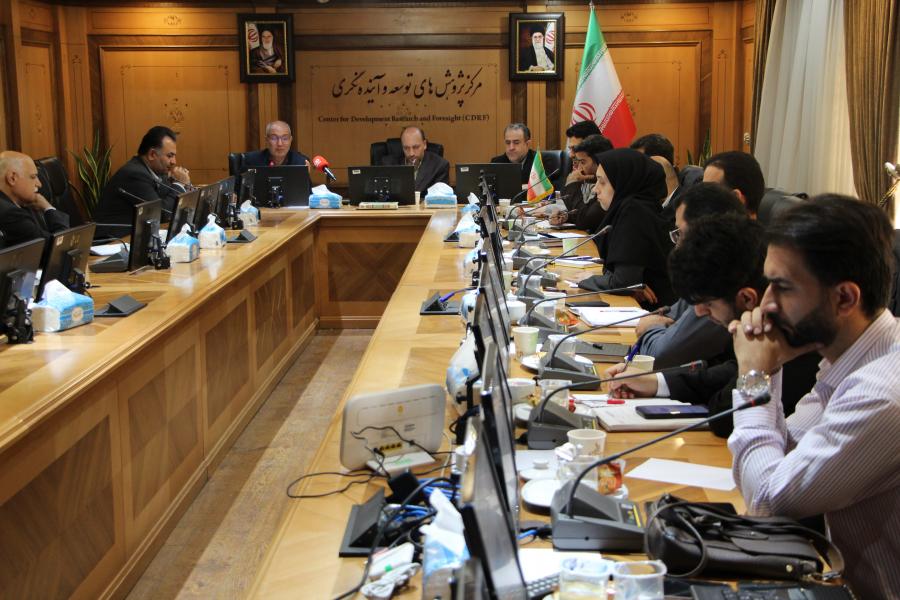
اهمیت امنیت غذایی معادل امنیت ملی است
در نشست علمی تخصصی مرکز پژوهش‌های توسعه و آینده‌نگری مطرح شد: تنش آب یکی از مهم‌ترین مسائل امروز در دنیا است، فعالیت کشاورزی مهم‌ترین نوع فعالیت در بحث آمایش سرزمین است، امروزه در جهان ازیک‌طرف با افزایش مصرف و از طرفی با کمبود منابع مواجه هستیم، امنیت غذایی در اکثر کشورهای جهان معادل امنیت ملی است، امنیت غذایی یعنی تأمین غذای سالم، کافی و مقوی برای همه افراد.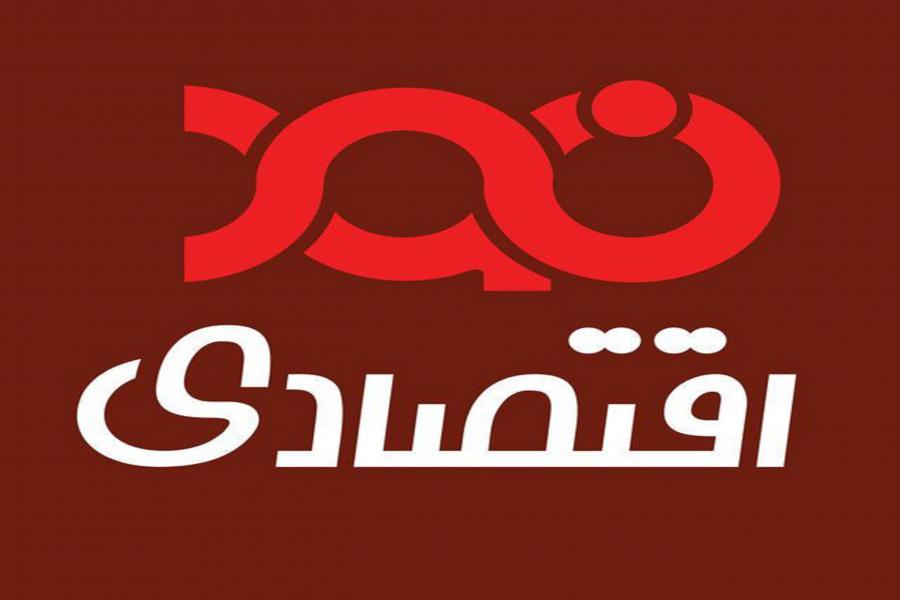
اهمیت امنیت غذایی معادل امنیت ملی است
به گزارش «نود اقتصادی» در این نشست که با عنوان "حکمرانی آمایش محور؛ سه‌گانه امنیّت آب و غذا و معیشت کشاورز" و با حضور دکتر سیّد جعفر حسینی، رئیس امور آمایش سرزمین و توسعه منطقه‌ای سازمان برنامه‌وبودجه کشور به‌عنوان مدیر علمی، دکتر اسکندر زند، استاد مؤسسه تحقیقات گیاه‌پزشکی کشور و معاون پیشین وزارت جهاد کشاورزی و دکتر آرمین توحیدی، سرپرست گروه کشاورزی، منابع طبیعی و محیط زیست دانشکده حکمرانی دانشگاه تهران به‌عنوان سخنران به ایراد نقطه‌نظرات خود پرداختند.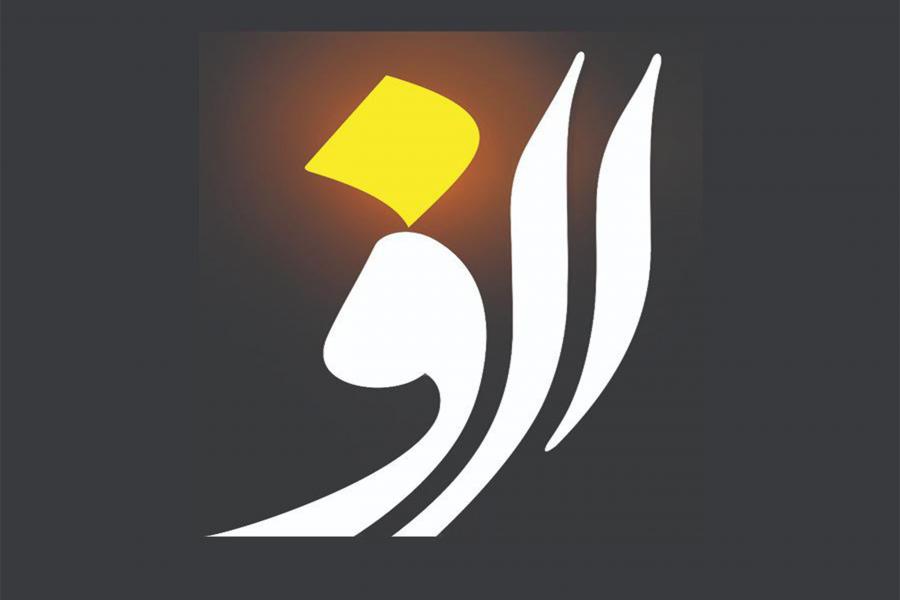
اهمیت امنیت غذایی معادل امنیت ملی است
در نشست علمی تخصصی مرکز پژوهش‌های توسعه و آینده‌نگری مطرح شد: تنش آب یکی از مهم‌ترین مسائل امروز در دنیا است، فعالیت کشاورزی مهم‌ترین نوع فعالیت در بحث آمایش سرزمین است، امروزه در جهان ازیک‌طرف با افزایش مصرف و از طرفی با کمبود منابع مواجه هستیم، امنیت غذایی در اکثر کشورهای جهان معادل امنیت ملی است، امنیت غذایی یعنی تأمین غذای سالم، کافی و مقوی برای همه افراد..jpg)
CDRF Conference Discusses Planning-oriented Governance for Water, Food, and Farmer's Livelihood Security
The Center for Development Research and Foresight (CDRF) held a conference on planning-oriented governance for water, food, and farmer's livelihood security. The conference speakers discussed the importance of agriculture in land use planning, the three pillars of food security, and global challenges to food security. They also defined land use planning and food sovereignty, and emphasized the importance of sustainable farming practices. The CDRF conference highlighted the critical role of agriculture and food security in land use planning. The speakers discussed the challenges to food security and the need for sustainable farming practices. They also emphasized the importance of empowering producers and consumers with control over the production, distribution, and consumption of food.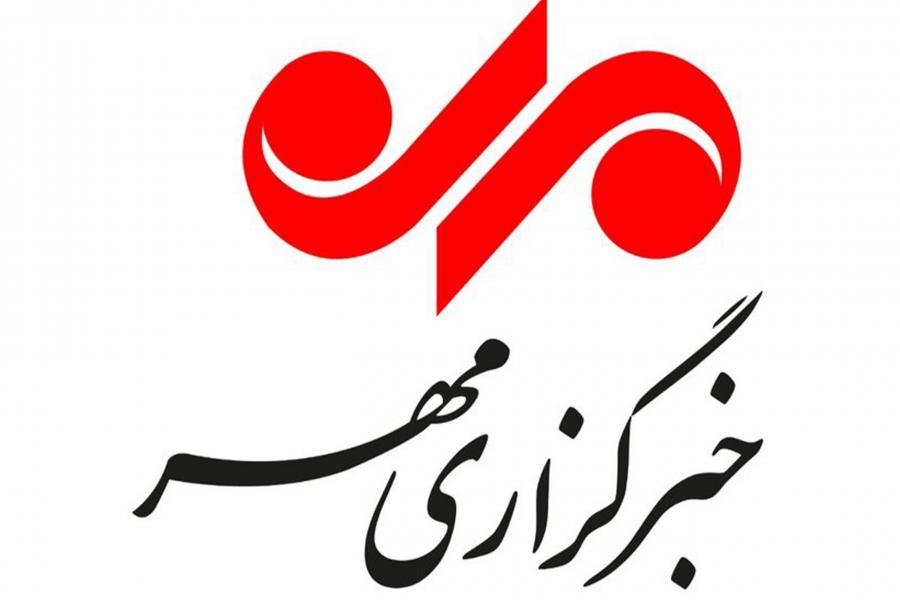
اهمیت امنیت غذایی معادل امنیت ملی است
به گزارش خبرگزاری مهر در نشست علمی تخصصی مرکز پژوهش‌های توسعه و آینده‌نگری گفته شد که تنش آب یکی از مهم‌ترین مسائل امروز در دنیا است، فعالیت کشاورزی مهم‌ترین نوع فعالیت در بحث آمایش سرزمین است، امروزه در جهان ازیک‌طرف با افزایش مصرف و از طرفی با کمبود منابع مواجه هستیم، امنیت غذایی در اکثر کشورهای جهان معادل امنیت ملی است، امنیت غذایی یعنی تأمین غذای سالم، کافی و مقوی برای همه افراد.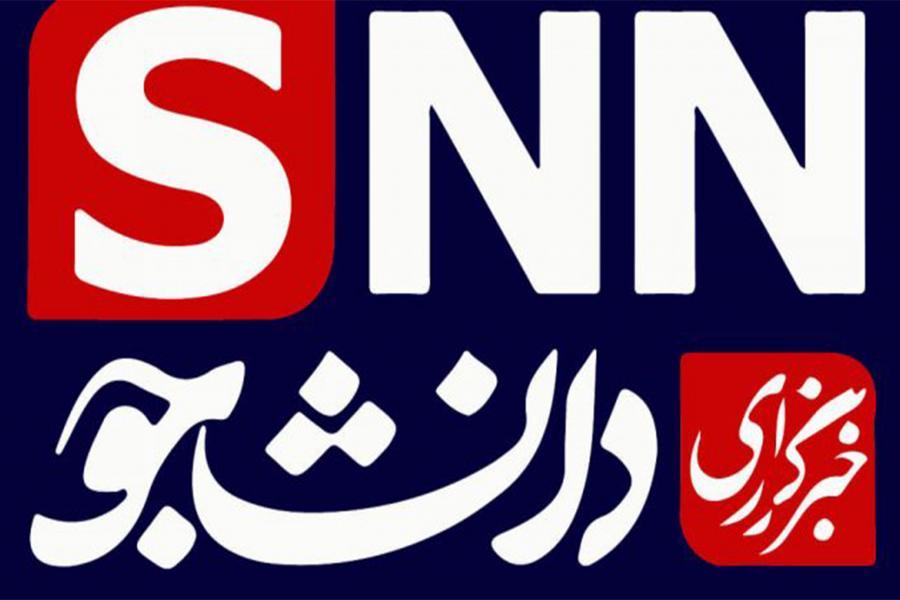
اهمیت امنیت غذایی معادل امنیت ملی است
به گزارش خبرنگار اقتصادی خبرگزاری دانشجو، در این نشست که با عنوان "حکمرانی آمایش محور؛ سه‌گانه امنیّت آب و غذا و معیشت کشاورز" و با حضور سیّد جعفر حسینی رئیس امور آمایش سرزمین و توسعه منطقه‌ای سازمان برنامه‌وبودجه کشور به‌عنوان مدیر علمی، اسکندر زند استاد مؤسسه تحقیقات گیاه‌پزشکی کشور و معاون پیشین وزارت جهاد کشاورزی و آرمین توحیدی سرپرست گروه کشاورزی، منابع طبیعی و محیط زیست دانشکده حکمرانی دانشگاه تهران به‌عنوان سخنران به ایراد نقطه‌نظرات خود پرداختند.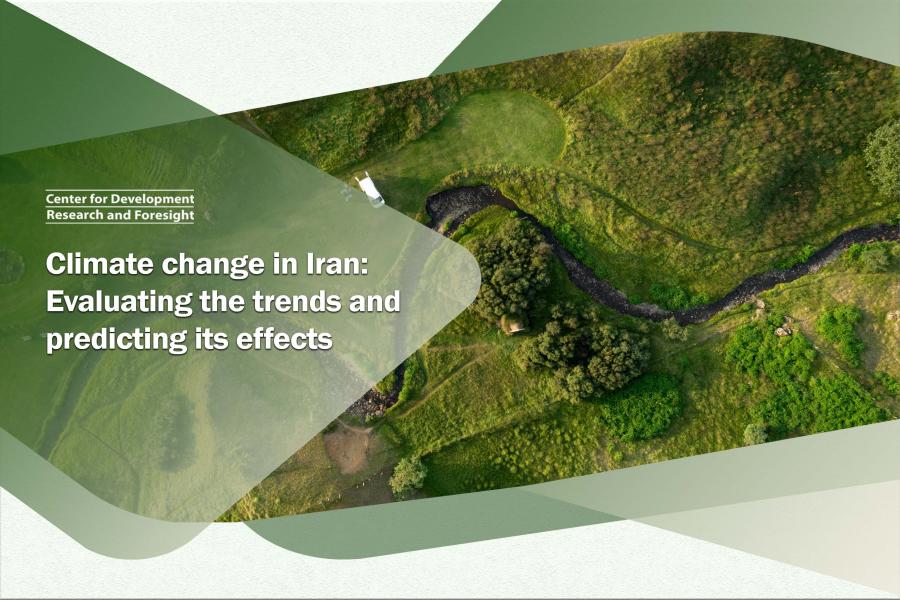
Climate change in Iran: Evaluating the trends and predicting its effects
Climate change and global warming have been one of the issues that have captured the attention of many researchers since the late twentieth century and have become the most significant challenge of the present century. The Earth's weather has been disrupted during these years, and its temperature has been increasing day by day.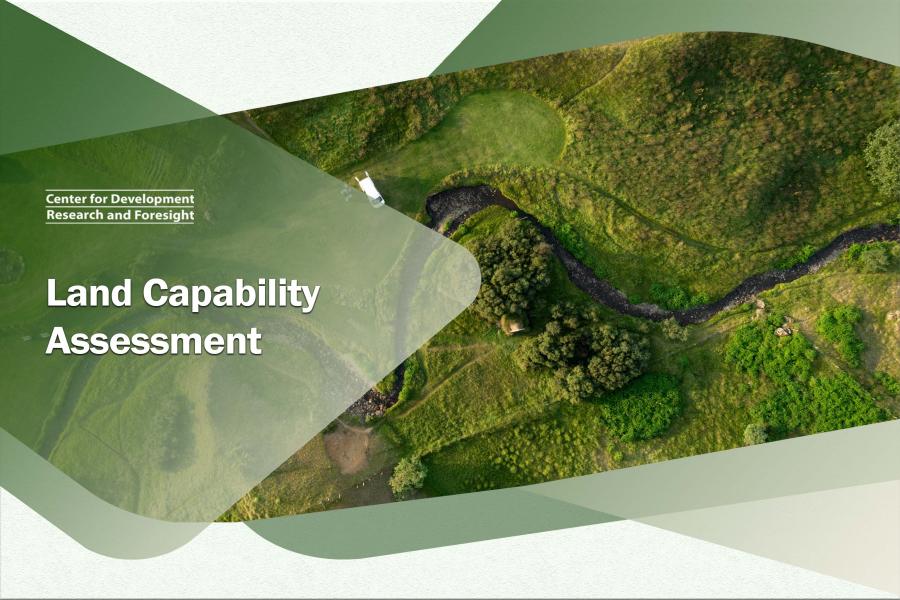
Land Capability Assessment
Environmental management is a crucial response to the crisis caused by rapid economic and social changes that affect the environment. Some of these challenges are global pollution, biodiversity loss, soil erosion, and urban sprawl. However, the pace of environmental monitoring, analysis, and planning has lagged behind the emergence of these problems.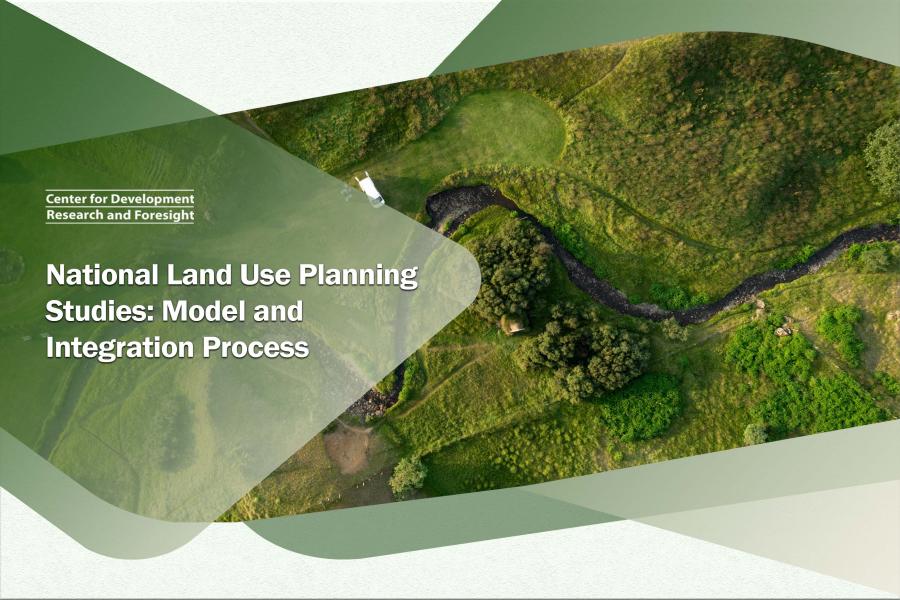
National Spatial Planning Studies: Model and Integration Process
Spatial planning is the process of designing a desirable spatial organization of activities, population, and their impacts on territory. Therefore, its main objective is to consider sectoral and regional balances and balanced land use in formulating scenarios and determining the preferred pattern of population and activity distribution.
The Model of Modern Productive Bio-Cities: A Facilitator for the Transition towards Islamic Urbanism
The physical infrastructure is recognized as a crucial component of national development. The generative bio-city concept offers a synergistic approach to addressing housing, employment, population, and lifestyle challenges within a socio-cultural framework. This model aims to address pressing issues such as land scarcity and ownership, providing affordable housing, achieving regional balance in land use, and preserving intimate and harmonious spaces within homes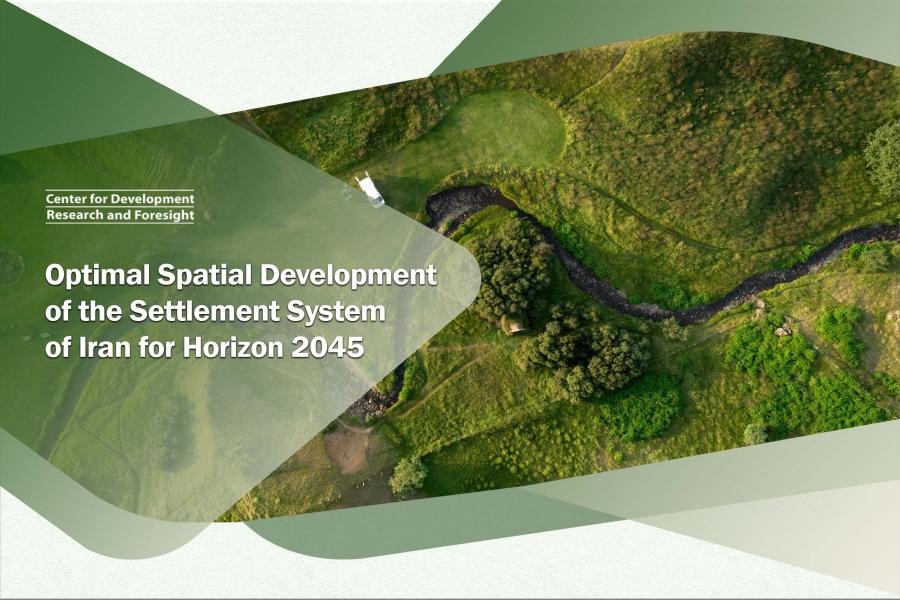
Optimal Spatial Development of the Settlement System of Iran for Horizon 2045
Space is the domain where all economic, political, social, and cultural relations of humans and the platform for all human activities are manifested and transformed. This domain is influenced and shaped by geographical, cultural, economic, and social characteristics and conditions. Throughout history, human civilizations have resulted in the formation of a specific type of space and settlement system organization of different ethnic groups and nations with diverse origins. However, these transformations, which occurred very slowly in the past, have had a very rapid and significant impact on spatial effects in recent centuries.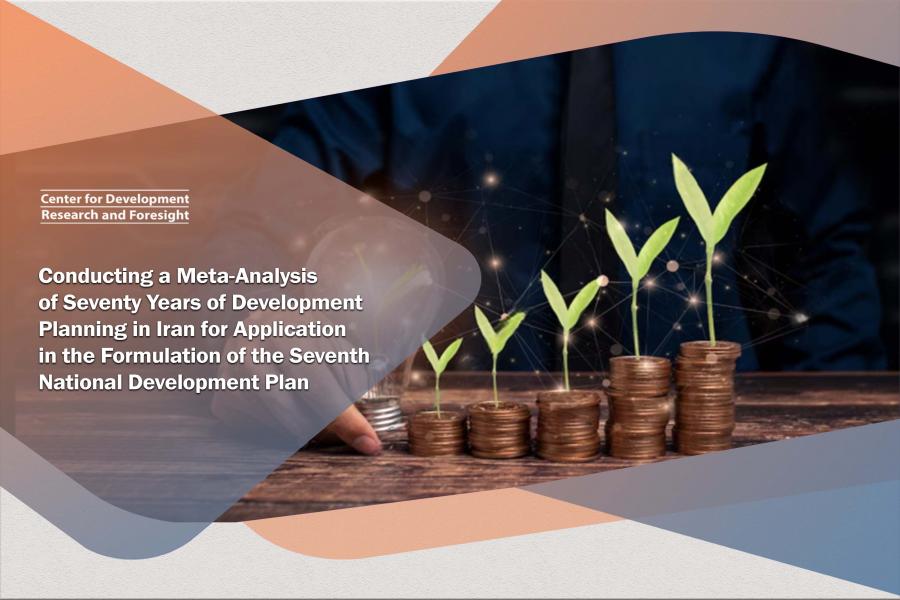
Conducting a Meta-Analysis of Seventy Years of Development Planning in Iran for Application in the Formulation of the Seventh National Development Plan
The development plan in Iran has been shaped by the evolution of the plan itself, following an established planning procedure. A crucial factor for successful planning is the establishment of a shared understanding and consensus on regulations, which serve as a blueprint for the content and structure of the plan among policymakers and planners. Given the importance of this issue, and recognizing that the formulation of regulations will be a pivotal step in advancing the seventh development plan, this study aims to delineate and clarify the regulatory elements of this plan.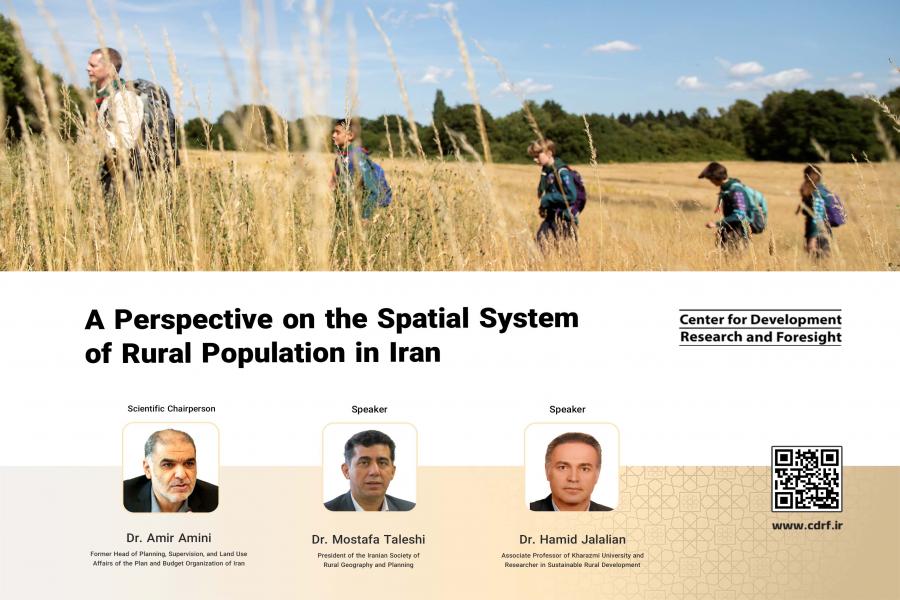
Exploring the Spatial Structure and Characteristics of Rural Population in the Country
Given the significance of the subject and the rural microsystem's role in shaping Iran's broader land area macro-ecosystem, an initial assessment of rural areas based on selected macro-social, economic, physical, and institutional indicators reveals that this microsystem faces obstacles in fulfilling its intended role in the national development landscape. These challenges have negatively impacted the rural system's vitality due to their cascading effects.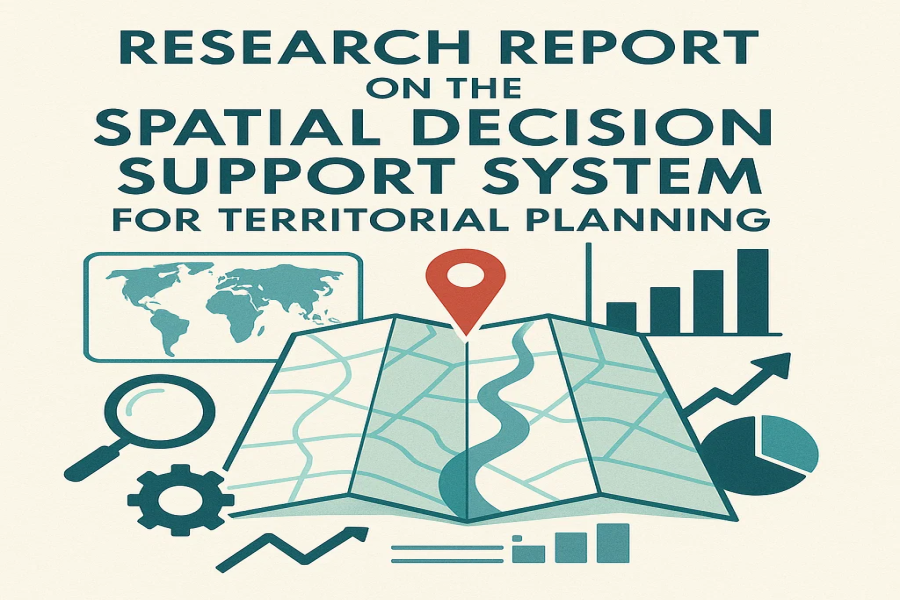
Research report on the Spatial Decision Support System for Territorial Planning
The Research Group on Land Use Planning, Regional Development, and Balance at the Center for Development Studies and Foresight has published its latest research report titled: "Spatial Decision Support System for Territorial Planning." The executive summary of the report states: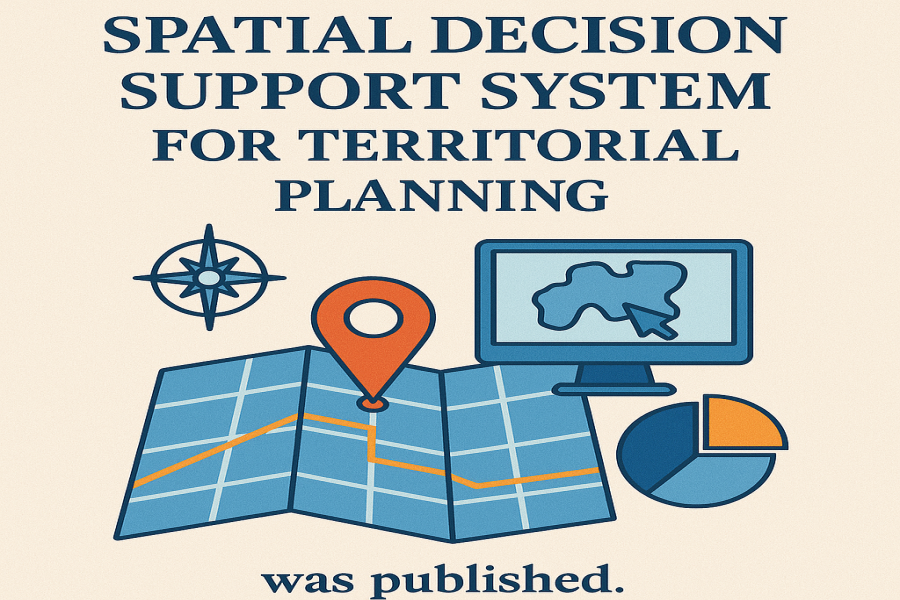
The research report titled “Spatial Decision Support System for Territorial Planning” was published.
The Territorial Planning, Development, and Regional Balance Research Group of the Center for Development Research and Foresight (CDRF) has published its latest research report entitled “Spatial Decision Support System for Territorial Planning.” The executive summary of this research report states: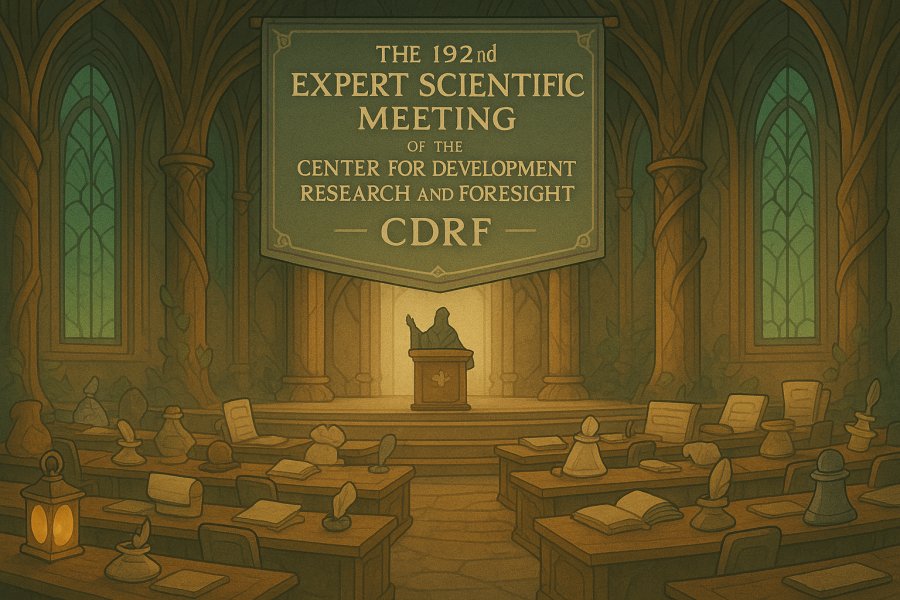
The 192nd Expert Scientific Meeting of the Center for Development Research and Foresight (CDRF) was held.
According to the Public Relations Office of the CDRF, the 192nd Expert Scientific Meeting of the CDRF was held under the title "Wildfires in the Zagros Forests: Challenges and Policy Recommendations." In this meeting, Farrokh Masjedi, Special Representative of the Head of the Plan and Budget Organization of the Islamic Republic of Iran (PBO) for the Preservation and Restoration of the Zagros Forests, served as the scientific chair of the meeting. Additionally, Mehrdad Akbarian, Representative of the Natural Resources and Watershed Management Organization, and Reza Siah Mansour, a faculty member at the Agricultural and Natural Resources Research and Education Center of Lorestan Province, participated as keynote speakers, presenting their viewpoints.
امروز : سه شنبه، ۲۸ بهمن ۱۴۰۴

